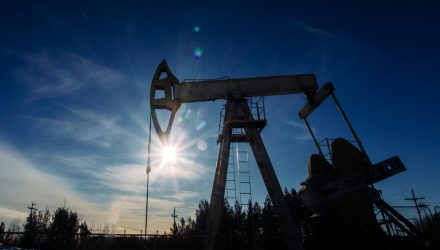The rebound in energy and oil exchange traded funds could may not be as steep and quick as previously believed, with emerging market demand expected to slow down due to uneven access of Covid-19 vaccinations between developed and developing countries.
According to the International Energy Agency, low coronavirus vaccination rates among emerging economies could extend the pandemic’s end date further, the Wall Street Journal reports.
While the IEA anticipates global oil demand in 2022’s final quarter to hit 100.6 million barrels for the first time since before the pandemic, the energy watchdog cut its outlook on demand for the second half of this year. The IEA now projects that the world will need about 300,000 barrels per day of crude less than previously expected in this year’s final two quarters due to the slow rollout of vaccinations in countries such as Brazil, India, and Malaysia.
“The uneven distribution of vaccines at the global level means that this situation could persist in the second half of 2021 and into 2022, unless access to vaccines improves,” the IEA said.
Meanwhile, the global glut of oil has been burned off after pandemic restrictions grounded flights and shut factories and restaurants last spring. Developed-world oil reserves fell in May to below pre-pandemic five-year averages for the first time in over a year and touched their lowest level since February 2020.
The potentially lower oil demand out of the emerging markets could affect energy sector ETF plays like the Energy Select Sector SPDR (NYSEArca: XLE), Vanguard Energy ETF (NYSEArca: VDE), iShares U.S. Energy ETF (NYSEArca: IYE), and Fidelity MSCI Energy Index ETF (NYSEArca: FENY).
Additionally, gains in crude oil play, like the United States Oil Fund (NYSEArca: USO) and the United States Brent Oil Fund (NYSEArca: BNO), could begin to slow down.
For more information on the various market sectors, visit our sector ETFs category.
